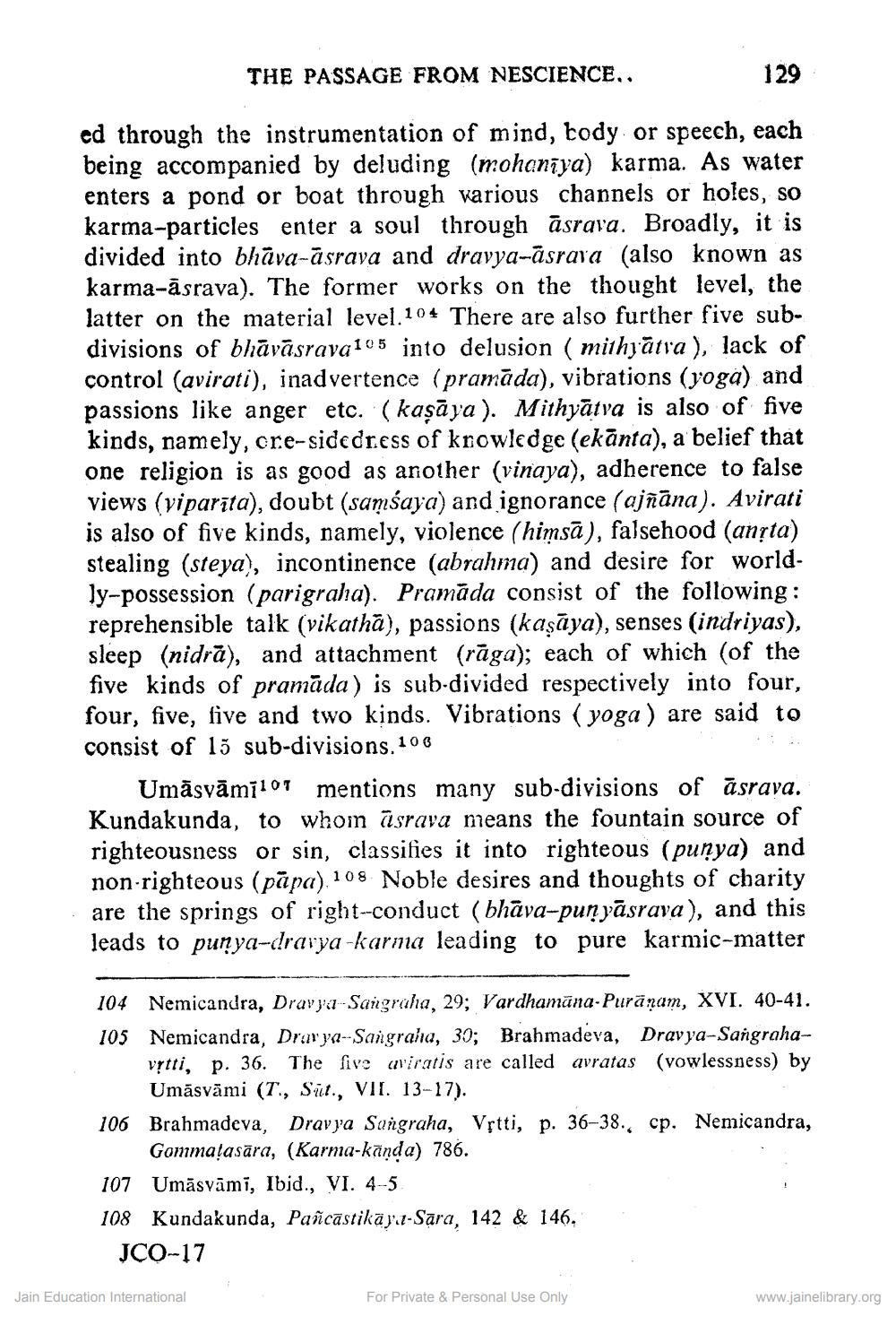________________
THE PASSAGE FROM NESCIENCE,
129
ed through the instrumentation of mind, body or speech, each being accompanied by deluding (mohonīya) karma. As water enters a pond or boat through various channels or holes, so karma-particles enter a soul through asrava. Broadly, it is divided into bhāva-asrava and dravya-asrava (also known as karma-āsrava). The former works on the thought level, the latter on the material level. 104 There are also further five subdivisions of bhāvāsrava105 into delusion (mithyātra), lack of control (avirati), inadvertence (pramāda), vibrations (yoga) and passions like anger etc. (kasāya). Mithyātva is also of five kinds, namely, cre-sidedress of knowledge (ekānta), a belief that one religion is as good as another (vinaya), adherence to false views (viparita), doubt (samsaya) and ignorance (ajñāna). Avirati is also of five kinds, namely, violence (himsā), falsehood (anţta) stealing (steya), incontinence (abrahma) and desire for worldly-possession (parigraha). Pramāda consist of the following: reprehensible talk (vikathā), passions (kaşāya), senses (indriyas), sleep (nidrā), and attachment (rāga); each of which (of the five kinds of pramāda) is sub-divided respectively into four, four, five, five and two kinds. Vibrations (yoga) are said to consist of 15 sub-divisions. 100
Umāsvāmīlot mentions many sub-divisions of asrava. Kundakunda, to whom äsrava means the fountain source of righteousness or sin, classifies it into righteous (punya) and non-righteous (papa),108 Noble desires and thoughts of charity are the springs of right-conduct (bhāva-pun yāsrava), and this leads to punya-drarya-karma leading to pure karmic-matter
104 Nemicandra, Dravya--Sangraha, 29; Vardhamāna-Purānam, XVI. 40-41. 105 Nemicandra, Drarya--Sangraha, 39; Brahmadeva, Dravya-Sangraha
vetti, p. 36. The five aviratis are called avratas (vowlessness) by
Umāsvāmi (T., Sat., VII. 13-17). 106 Brahmadeva, Dravya Sangraha, Vrtti, p. 36–38. cp. Nemicandra,
Gommaļasāra, (Karma-kända) 786. 107 Umāsvāmi, Ibid., VI. 4-5. 108 Kundakunda, Pañcastikäyız-Sara, 142 & 146.
JCO-17
Jain Education International
For Private & Personal Use Only
www.jainelibrary.org




